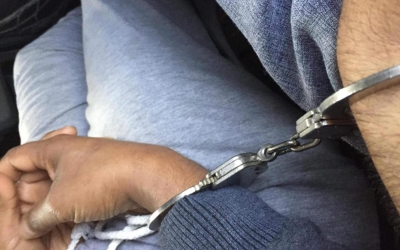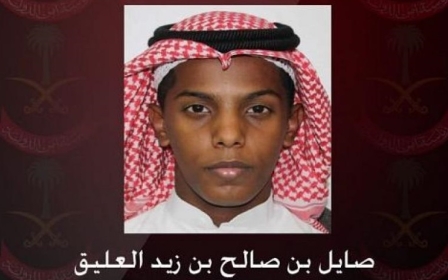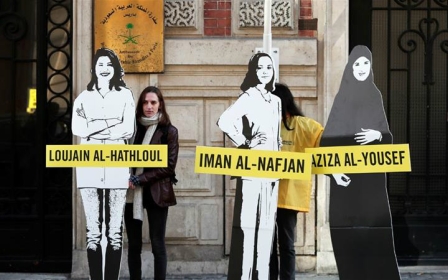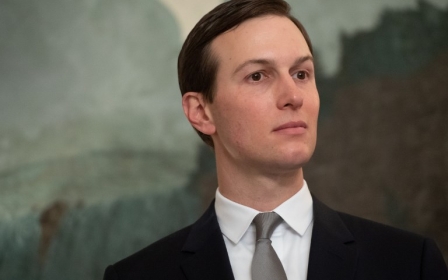Saudi executions: Dozens killed included some arrested as juveniles
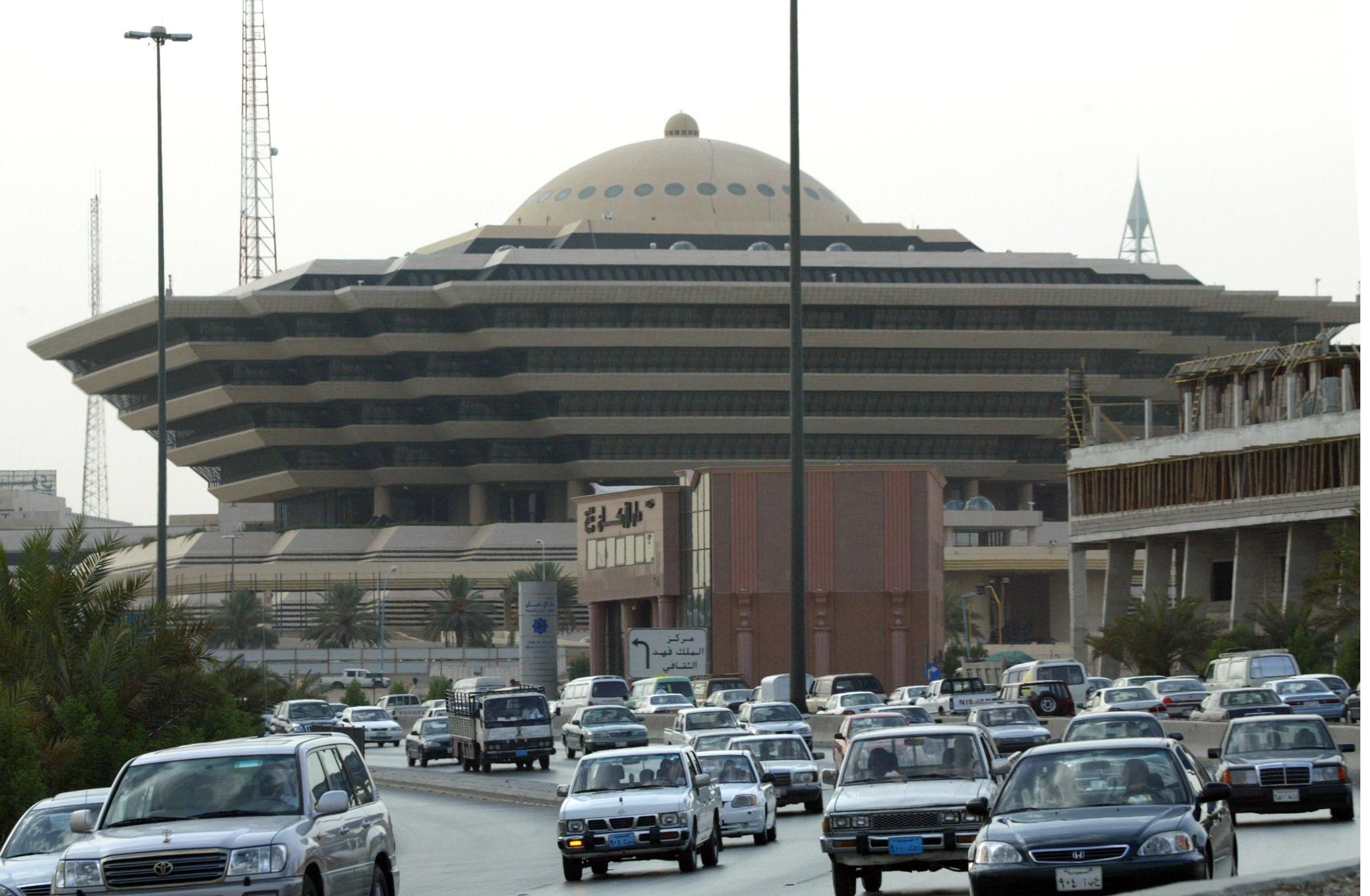
Saudi Arabia's interior ministry said that the kingdom executed 37 people on Tuesday in connection with alleged terrorism crimes, the largest mass execution in the Gulf state for more than three years.
Most, if not all, were convicted in the Specialised Criminal Court (SCC), the kingdom's secretive and widely condemned anti-terrorism tribunal.
"The death penalty was implemented... on a number of culprits for adopting extremist terrorist ideologies and forming terrorist cells to corrupt and disrupt security as well as spread chaos and provoke sectarian strife," the official Saudi Press Agency (SPA) said.
Reprieve, a UK-based campaign group which opposes the use of the death penalty, told Middle East Eye that five of its clients were among those killed.
New MEE newsletter: Jerusalem Dispatch
Sign up to get the latest insights and analysis on Israel-Palestine, alongside Turkey Unpacked and other MEE newsletters
It said three of them were juveniles at the time of the alleged offences for which they were executed, and that all five had been tortured into making false confessions. International law prohibits sentencing juveniles to death.
Reprieve director Maya Foa called the executions an "egregious display of brutality" by Saudi Crown Prince Mohammed bin Salman.
"Many were convicted of non-lethal crimes, such as attending protests," Foa said. "That the Saudi regime believes it has impunity to carry out such patently illegal executions, without notice, should shock its international partners into action.
"The US and the UK, in particular, must ensure there are consequences, and that no-one else is unlawfully executed for exercising their right to freedom of expression," she continued.
According to a Reprieve case report, Munir al-Adam, one of those executed, was beaten so badly after his arrest in 2012 that he was left permanently deaf in one ear.
The 37 Saudis executed on 23 April
+ Show - HideAhmed Hasan Ali al-Rabee, Ahmed Hussien Ali al-Aradi, Ahmed Faisal Hasan al-Darwish, Jaber Zouhir Jaber al-Marhoun, Hussien Hasan Ali al-Rabee, Hussien Ali Jassim al-Hamidi, Hussien Qassem Ali al-Aboud, Hussien Mohammed Ali al-Meslim, Haider Mohammed Ibrahim al-Leef, Khaled Hammoud al-Farraj, Khaled Abdelkarim Saleh al-Touijri, Salem Abdullah Awad al-Amri al-Harbi, Saeed Mohammed Saeed al-Skafi, Salman Amin Salman al Quriash, Taleb Meslim Suliman al-Harbi, Taher Meslim Suliman al-Harbi, Abbas Hajji Ahmed al-Hasan, Abdulaziz Hasan Ali al-Sahwi, Abdelkarim Mohammed al-Hawaj, Abdullah Suliman Saleh al Esraih, Abdullah Adel Hasan al-Oujan, Abdullah Hani Abdullah al-Tareef, Aziz Mahdi Abdullah al-Rafe al-Omari, Ali Hussien Ali al-Ashour, Ali Hussien Ali al-Mihna, Fadel Hasan Abdulkarim Labbad, Mujtaba Nader Abdullah al-Suwayket, Mohammed Hussien Ali al-Ashour, Mohammed Saeed Abdrab al-Rasoul al-Khatem, Mohammed Ayed Mohammed al-Namlan al-Qahtani, Mohammed Abdelghani Mohammed Attyieh, Mohammed Mansour Ahmed al-Naser, Mustafa Ahmed Abdelatif Darwish, Mutadher Ali Saleh al-Sabieti, Munir Abdullah Ahmed al-Adam, Hadi Yousif Reda al-Hazeem and Yousif Abdullah Awad al-Omari.
Adam told the judge during his trial in 2015 that he had signed confessions attributed to him because he was exhausted by torture, Reprieve said. He was sentenced to death in June 2016.
Others identified by Reprieve as its clients on Tuesday were Mujtaba al-Suwayket, who was arrested aged 17 in 2012 0n charges including armed disobedience against the king; Abdelkarim al-Hawaj, arrested aged 17 in 2014 and charged with participating in demonstrations among other charges; Salman Quriash, who was arrested in 2013 and accused of offences committed when he was 17 in 2011 and 2012; and Abbas al-Hasan, arrested in 2013 and accused among other charges of spying for Iran.
The executions took place in Riyadh, the holy cities of Mecca and Medina, central Qassim province and Eastern Province, the agency said. The 37 were all Saudi nationals.
According to Madawi al-Rasheed, a Saudi professor at London School of Economics, 32 of those executed were Shia Saudis.
Saudi executions today target 32 Shia out of the 37 executed, according to activist and colleague Dr Fuad Ibrahim https://t.co/AcERQwh4sc
— Madawi Al-Rasheed (@MadawiDr) April 23, 2019
The SPA said that one person, Khaled Abdelkarim Saleh al-Touijri, was crucified, a punishment reserved for particularly serious crimes.
Executions in the kingdom are usually carried out by beheading.
The kingdom commonly uses the term "crucifixion" to refer to the process of publicly displaying a corpse after execution.
“In Saudi Arabia, the practice of ‘crucifixion’ refers to the court-ordered public display of the body after execution, along with the separated head if beheaded. It takes place in a public square to allegedly act as a deterrent,” rights group Amnesty International said in 2013.
Concerns raised
At least 100 people have been executed in Saudi Arabia since the beginning of the year, according to a count based on official data released by SPA.
Last year, the oil-rich Gulf state carried out the death sentences on 149 people, according to Amnesty International, which said only Iran was known to have executed more people.
Rights experts have repeatedly raised concerns about the fairness of trials in Saudi Arabia.
People convicted of terrorism, homicide, rape, armed robbery and drug trafficking face the death penalty, which the government says is a deterrent for further crime.
The biggest mass execution to take place in Saudi Arabia in recent years was on 2 January 2016 when 47 people were killed on one day over "terrorism" offences.
While many of those killed were accused of being members of militant groups such as Al-Qaeda, among those executed was the popular Shia cleric Nimr al-Nimr.
Nimr had been a leader of anti-government protests in the kingdom's heavily Shia Eastern Province and had been sentenced to death for, among other charges, "taking up arms against the security forces" and seeking "foreign meddling" in the country.
His death provoked mass protests inside and outside Saudi Arabia and saw the burning of the Saudi embassy in Iran by angry demonstrators.
Middle East Eye delivers independent and unrivalled coverage and analysis of the Middle East, North Africa and beyond. To learn more about republishing this content and the associated fees, please fill out this form. More about MEE can be found here.


